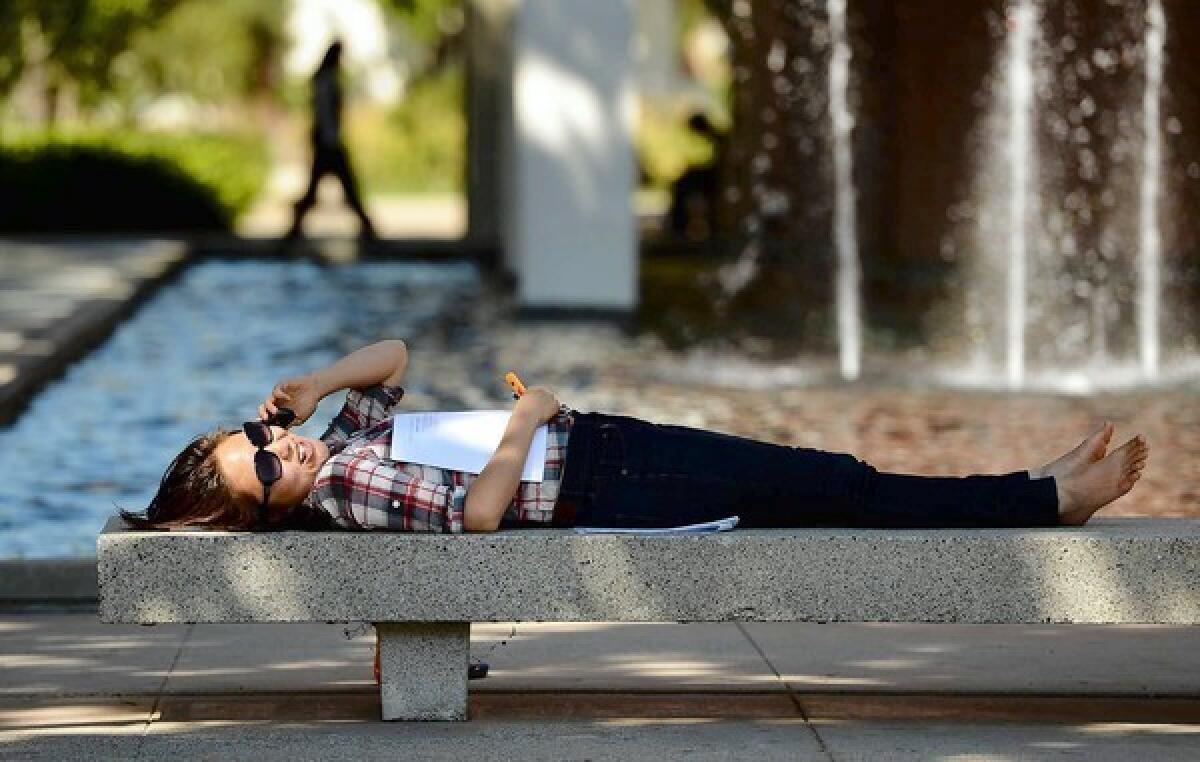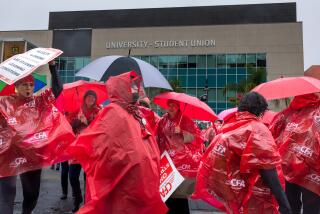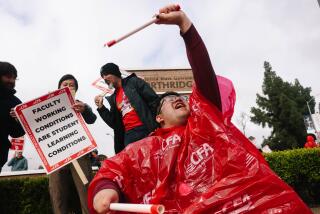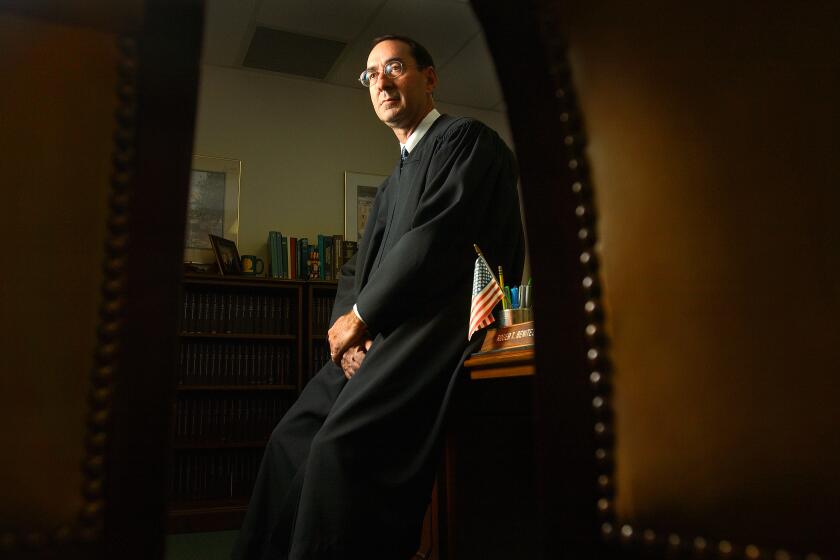Cal State system to hike tuition 5% if Prop. 30 fails

After hearing dire budget scenarios of devastating cuts to faculty, students and classes, California State University trustees Tuesday tentatively approved a plan to raise tuition 5% next year if voters reject a tax measure on the November ballot.
The board’s finance committee acted on a series of contingency measures during a meeting in Long Beach to deal with what Chancellor Charles B. Reed called “the biggest challenge CSU has ever had to face.”
Failure of Proposition 30, backed by the governor, would trigger a $250-million funding cut to the Cal State system. The 5% tuition hike — equal to $150 per semester — would raise an estimated $58 million in revenue in fiscal 2012-13, officials said.
Annual undergraduate tuition at the system’s 23 campuses would rise to $6,270, not including school-based fees, books and other costs.
Officials are also proposing to increase per-unit costs for non-resident students 7%, to $399 from $372.
If Proposition 30 passes, Cal State would forego the January hike and also rescind the 9% tuition hike that took effect this fall and was expected to raise $132 million in revenue. The system would have to refund tuition checks, grant tuition credit and recalculate financial aid packages for most of its 412,000 students.
The finance panel approved the measures by a vote of 6 to 1, with student trustee Jillian Ruddell opposed. The full board of trustees is expected to approve the plan Wednesday.
The University of California regents last week held a brainstorming session to determine how that system would deal with a potential $375-million funding cut if the tax hike measure fails. The regents also said a midyear tuition increase, possibly as much as 20%, or about $2,400, could be possible.
At the Cal State meeting, several speakers, including Lillian Taiz, president of the California Faculty Assn., spoke against the revenue-raising measures, arguing that other options to save costs and increase funds had not been exhausted.
Several students spoke against the fee hike, noting that it was particularly distressing as incoming campus presidents receive such perquisites as salary hikes, car allowances and in many cases state-funded housing.
“We’ve had ongoing tuition hikes year after year,” said Cal State San Bernardino anthropology major Miguel Garcia, 26, before addressing the board. “Why do they keep giving executives pay increases if they don’t have any money?”
Despite the uncertainty of Proposition 30’s outcome, the chancellor argued for action now.
“We’re operating on the edge,” Reed told trustees. “The contingencies need to be voted on now and not kicked down the road. We need to give students, parents and the public adequate notice.”
Several trustees said they voted for the plan with reluctance.
“There’s no question we will do whatever it takes to roll back tuition,” Roberta Achtenberg said. “We never wanted to raise it in the first place because we knew it would be a burden on families. But we had no choice.... We should be doing everything possible to pass Prop. 30, but it’s important to make everybody understand that if it doesn’t pass there will be terrible consequences.”
Reed highlighted some of those consequences: about 20,000 qualified students turned away, 5,500 class sections slashed, and 1,500 faculty and staff reductions.
Cal State campuses are preparing to send out letters to prospective students warning them that they may not have spots if the tax measure fails. Critics, who oppose raising taxes, also said the system should not be using public funds for such political purposes.
Proposition 30 would raise billions of dollars for the state budget by temporarily increasing sales levies, and income taxes on high earners.
Several college leaders previewed ongoing and potential campus effects if that measure fails. Cal Poly Pomona President J. Michael Ortiz said the school is using obsolete equipment in a number of academic fields because it can’t afford cutting-edge technology.
John D. Welty, president of Cal State Fresno, said his campus may be forced to cut the number of majors offered at the school as well as courses offered in some majors. The campus has built up $130 million in deferred maintenance.
“I’m awake at night worrying about whether we’re going to be able to keep the infrastructure in place,” Welty said.
Reed had also proposed a controversial series of fee hikes even if Proposition 30 passesthat were designed to increase revenue but also to change student behavior. The trustees’ finance committee shelved those ideas until its November meeting, which falls after the election.
Among those ideas, which would bring in about $35 million, were:
• A per-unit supplement of $372 for seniors who have already accumulated 150 semester units.
• A $100 per-unit fee for students who want to repeat a class. Officials estimate that each term, about 40,000 seats in classes are occupied by students who have already taken the course.
• A $200 per-unit fee for any course load of 17 units or more, which is intended to discourage students from enrolling in a number of classes and then dropping some later.
More to Read
Start your day right
Sign up for Essential California for news, features and recommendations from the L.A. Times and beyond in your inbox six days a week.
You may occasionally receive promotional content from the Los Angeles Times.







